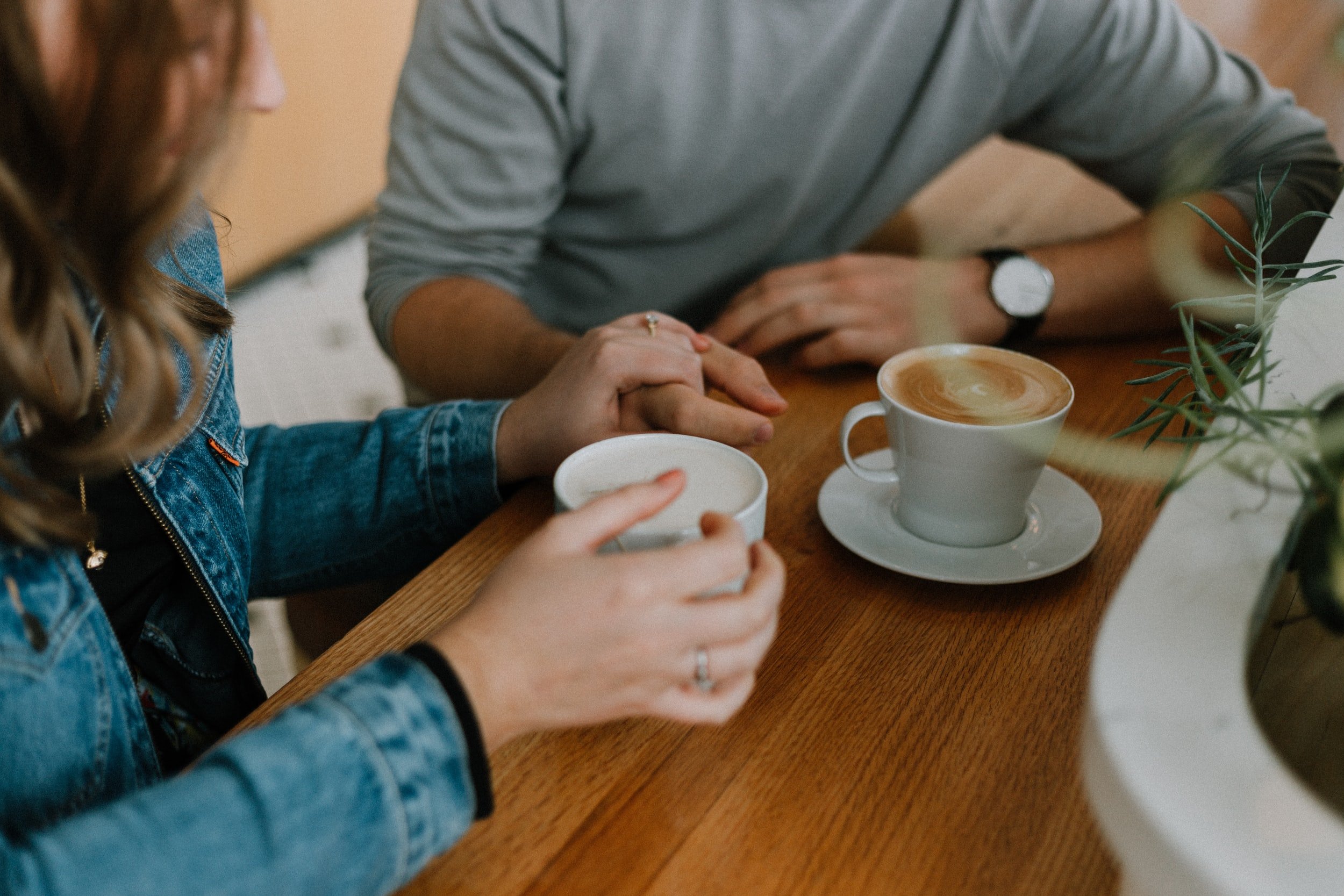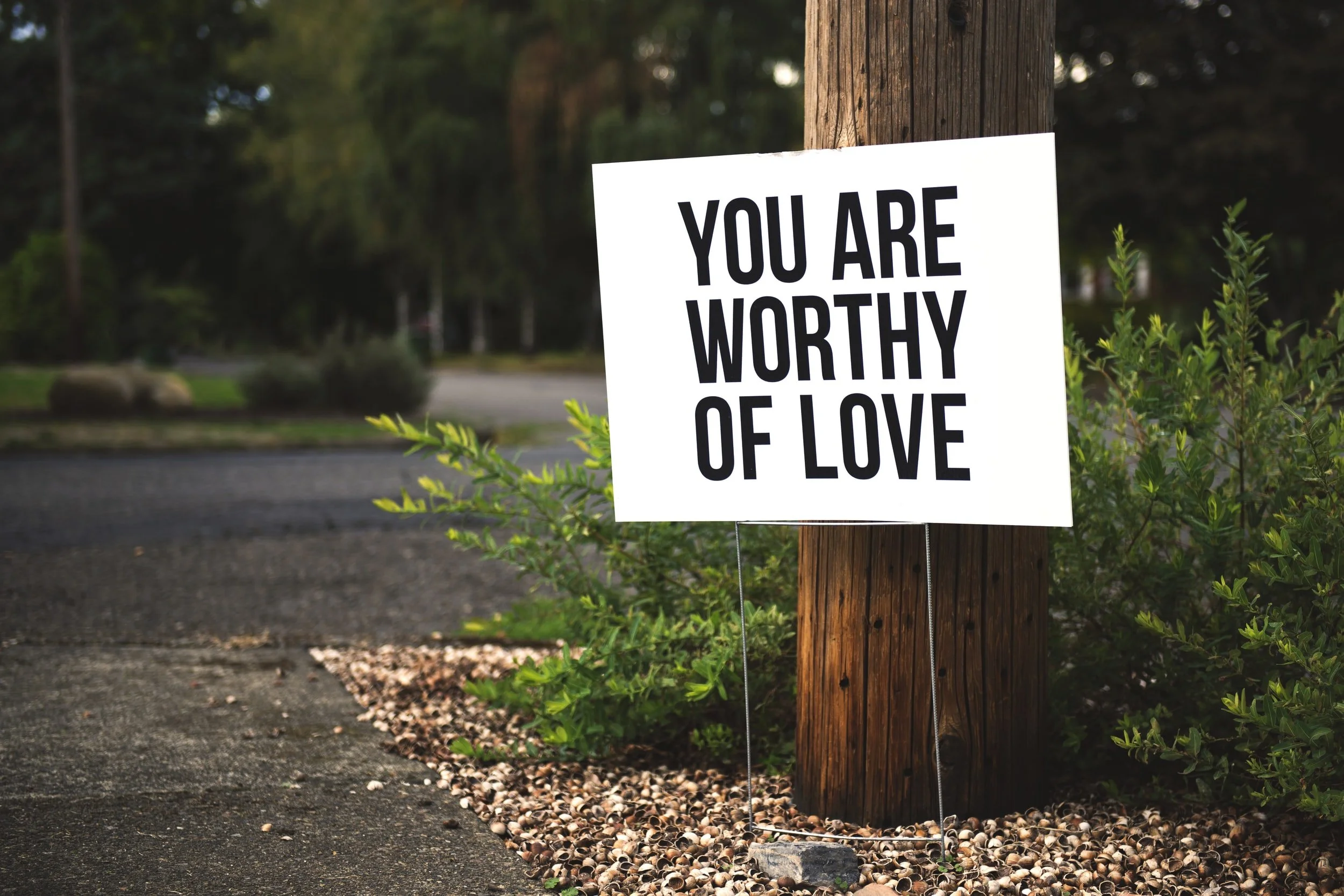Dating in Eating disorder Recovery
One exciting, and maybe nerve-wracking, part of a recovered life is having openness to dating and forming intimate connections. In the midst of an eating disorder, it can be very hard to see outside of yourself, and for many it can drive you into isolation where food and body are the center of your world. But when you recover, life opens up. You have more energy, more desire to connect, more willingness to be a full participant in life again. And for many of my clients who are in their 20s, this might mean entering the dating scene again!
Dating is fun, frustrating, exciting, terrifying, joyful, and soul-sucking. It is all of these things at once. Especially dating in 2022, where finding a date feels more like online shopping than stolen glances across the bar. These are new and different obstacles than the ones our parents and parents’ parents faced when finding a life partner. When the culture is centered on swiping, it places undue stress on appearance. You might feel like representing yourself through selfies is counterintuitive to all you’ve learned on your recovery journey – you know, the messages like “people love you no matter what your body looks like” and “who you are in your soul is more important than the body it lives in.” The thought that the way to meet new people is through posting your most “attractive” pictures in an app profile might be so aversive that you opt out of re-entering the dating scene entirely.
I get it. It’s rough out here. Facing app culture is such a vivid reminder that our society unfortunately continues to be pretty superficial. One of the most challenging parts of eating disorder recovery is learning to sustain body respect, food neutrality, and anti-diet values in a world that promotes the opposite. In my own recovery, and experience surfing through the apps, I’ve learned a few tips, tricks, and minor adjustments you can make to your profile, your outlook, and your in-person dating experiences to continue honoring your own values, maintain a neutral to positive body image, and create meaningful connections – even in 2022.
Know your values and lead with them!
In therapy with my clients, a major focus is often getting clear about what you value, and especially, what you value more than your eating disorder. Values are a guide you can use to help navigate difficult moments in your lives and make decisions that will serve your highest good. This absolutely applies when you’re considering dating, whether that means looking for a life partner, a partner for the night, or something in-between. Allow me to give you an example:
Perhaps one of your core values is authenticity. For you, that might mean being vulnerable, honest, and straightforward is important not just for you to display while dating, but for your potential partner to exhibit. When you’re creating your profile, you might think about including information that might not seem like the “coolest” or “sexiest” by some others. Maybe you write about the fact that you’ve read the Harry Potter series 7 times, and you dress up in full Hogwarts regalia every July 31st to celebrate Harry’s birthday. Yes, that will probably eliminate a good portion of the population – but it also narrows down potential dates to people who see that authenticity, appreciate it, and maybe even identify with it! For some, that admission might even be more important than that cute picture of you and a baby elephant.
Same goes when swiping through profiles of other people. If you lead with your value of authenticity, consider looking for profiles that are not “perfectly polished.” Those would be the profiles that don’t only include FaceTuned selfies and glamor shots (though there’s nothing wrong with that); consider looking for pictures that tell a story about who the person is.
Whatever your highest values are, spend some time thinking about how you might be able to display those in some small way in your own profile, and how those values might show up in the values of others.
2. Consider what you need to be comfortable with food and body on dates.
When you’re in recovery, it is super common to still have disordered thoughts and judgments about food and your body that linger, even if you’re not actively engaging in behaviors. It can feel like an old tape replaying in your mind – old food rules or insecurities might be brought to the forefront when you’re at restaurants or bars. This is totally normal, and in therapy you can learn how to swat these thoughts away like flies, so that you don’t slip back into old eating disorder behaviors. In early recovery, it is a daily practice to witness these thoughts and go opposite from them, and it is anything but easy. So when that cute drummer guy asks you out for tapas and drinks you may have some mixed feelings.
In these instances, it is important to remember that it is up to you to set boundaries and determine what you’re comfortable with at whatever stage of recovery you’re in. If you’re still wrestling with fears of eating in front of others, maybe for the first few dates suggest non-food centric experiences, like bowling or going to a museum. Activity dates can be really fun, and they have the added bonus of relieving the pressure of filling silence during a meal. By no means am I suggesting to avoid food dates forever, on the contrary I think it's incredibly important to face that fear – at your own pace! I highly suggest sitting down with your dietitian before any food-related dates to plan ahead, identifying what is on the menu that will work with your meal plan. That way, you can remain focused on staying in the moment without the threat of your eating disorder running the show.
Body and appearance insecurity or preoccupations come up for most people when dating, not just those of us in eating disorder recovery. And it is not a crime to want to look cute! But remember this important truth: there is more than one way to feel attractive, and engaging in eating disorder behaviors to achieve “attractiveness” does not serve your highest good. When picking out clothes for your date, focus on comfort, confidence, and color. Change your “cuteness” criteria by asking yourself, “How do I feel in this?” instead of “How do I look in this?” Consider what outfit would allow your body to feel comfortable and relaxed. Think about what styles match your personality and bring out your confidence. Do you have a power color or a color you gravitate to the most? Use these considerations and questions as guides to focus on the feeling, rather than the appearance. Bonus points if you can limit your time in front of the mirror to less than a minute!
3. Center into your inherent worthiness.
One of the most important lessons I learned when I recovered from an eating disorder is that I am worthy, simply by virtue of being a human. My whole life was about striving to please others and achieve a level of perfection that I thought would deem me worthy of love, happiness, and success. It was huge and almost unfathomable to think that I could be a worthy human being without doing something to earn it. The shift from identifying as a human being rather than a human doing had major implications on several areas of my life, one of the most prominent being my relationships.
As women and AFAB folks, we’re implicitly and explicitly taught that our worth is tied to serving and pleasing others, particularly men. I’m a straight woman, so dating men often triggered this programming in my demeanor and actions. Even if consciously I understood I did not need a man to be good enough, it was so ingrained in my psyche that it became a core belief I was often unaware of. If dating right now is a conscious (or unconscious) quest to find worth and value, I urge you to pause and think about whether or not this is the right time to date. Recovery has taught me that in relationship with others, I need to respect and honor myself before I can extend that to friends, family, and especially my romantic partners. In the same way that my eating disorder was a mechanism for searching for self-worth, my initial foray into the dating world was unconsciously another avenue to search for my value.
For all of my clients actively dating, I suggest practicing a form of grounding and centering before going out. Whether it is a mantra, a meditation, breathwork, or dancing to Beyonce (a personal favorite), it is important to remind yourself that you are worthy of love, deserving of happiness, inherently valuable because you are a soul incarnated on this planet! Celebrate what makes you you, in whatever form that takes. From this place of centered worth, you can connect more authentically with others and can guard your recovery from the threat of the false narrative that your worthiness is contingent.
Dating and relationships is only one of the many issues I walk through with my clients every day. As human beings we are constantly in a state of transition and growth, especially when we’re on the path towards eating disorder recovery. Whether you’re adjusting to adulting, battling a harsh inner critic, attempting self-compassion but getting met with rigid perfectionism – it’s tough. For those of us with the drive for constant stability and control, it can be so hard to ask for help. Here’s the truth – you don’t need to do this by yourself, even if you could. If you’re walking a rough road, I’ve been there. Let’s do this together.



